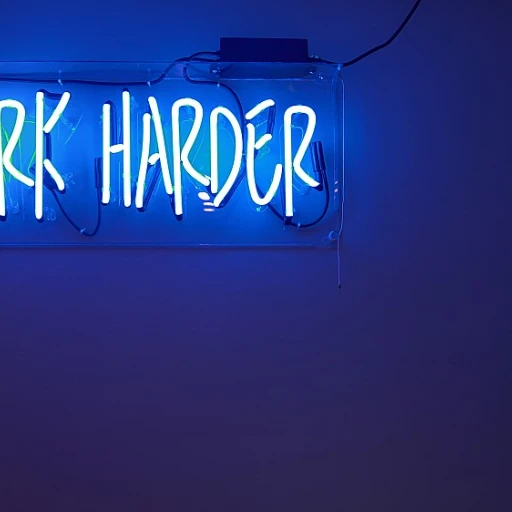Understanding Employee Assessment Tools
A Closer Look at Employee Assessment Tools
Employee assessment tools are pivotal in refining the hiring process by providing quantifiable and objective data about candidates' skills and competencies. These tools are designed to evaluate a range of attributes including cognitive abilities, technical skills, emotional intelligence, and more, all of which contribute to making informed hiring decisions. The assessments can be intricate and multifaceted, integrating various tests and evaluations to provide a comprehensive picture of a candidate's potential. The use of these tools has become a cornerstone in talent management strategies, facilitating not only the pre-employment phase but also ongoing employee development. By identifying strengths and weaknesses, assessment tools can aid in the alignment of talent with organizational goals, ensuring that the right people are placed in the right roles. Investing in such tools can significantly enhance team dynamics and overall work performance. With the increasing complexity of modern job roles, these tools support employers in conducting a thorough analysis of candidates’ capabilities, thereby optimizing the hiring process. Additionally, they are instrumental in succession planning by providing insight into employee readiness for advancement. While these tools are invaluable, integrating them into your hiring strategy requires careful planning and execution to address potential challenges. From pre-employment screenings to post-hire assessments, the right combination of tools tailored to organizational needs will undeniably boost employee engagement and performance.Types of Employee Assessment Tools
Exploring Various Types of Assessment Tools
A wide array of assessment tools are available for evaluating potential employees during the hiring process. These tools serve different purposes and can provide valuable insights into a candidate's fit for a job. Here's a look at some popular types:- Cognitive Ability Tests: These assessments gauge an individual's general mental capabilities, such as logic, reasoning, and problem-solving skills. They are often used to predict job performance and learning aptitude.
- Personality Assessments: Tools like the Myers-Briggs Type Indicator (MBTI) or the Big Five Personality Traits help in understanding candidates' personalities, predicting how they will fit within a team, and anticipating their work styles.
- Skill Assessments: These tests evaluate specific job-related skills and competencies, ensuring candidates have the necessary technical abilities required for the role.
- Emotional Intelligence Tests: Assessing emotional intelligence can be crucial in predicting a candidate’s capacity for teamwork, leadership, and managing workplace relationships.
- 360-Degree Feedback: Although typically used for employee development, this tool can offer insights into a candidate’s previous performance and how they are perceived by peers and supervisors.
- Situational Judgment Tests (SJTs): By presenting applicants with hypothetical, job-related situations, SJTs test their problem-solving and decision-making skills in realistic scenarios.
Benefits of Using Assessment Tools in Hiring
Elevating Hiring Outcomes with Assessment Tools
Incorporating effective assessment tools into the hiring process offers numerous advantages, significantly enhancing the ability to make informed hiring decisions. By utilizing these tools, organizations can benefit from a more streamlined and efficient approach to identifying the right talent for their teams.
These tools are designed to evaluate a range of competencies and skills, from technical expertise to emotional intelligence. By implementing a structured assessment process, employers can identify a candidate's strengths and weaknesses more accurately.
- Improved Accuracy: Assessment tools provide objective data, reducing reliance on biased judgments during the hiring process. This capability enhances the talent evaluation process, ensuring that employers select candidates who genuinely possess the required skills and align with the company's organizational culture.
- Enhanced Efficiency: Reducing the time spent in manual skills verification, assessment tools help streamline the pre employment phase. The use of automated testing and assessments allows for quick and reliable identification of the most qualified individuals, saving both time and resources.
- Employee Performance and Development: After hiring, these tools can contribute to ongoing employee development by highlighting areas needing improvement. Skill assessments guide professional development initiatives, fostering employee engagement and preparing the workforce for succession planning.
- Consistent Evaluation: One of the significant benefits of using such tools is the standardization of the evaluation criteria. This consistency ensures that each candidate undergoes an equivalent assessment, leading to more fair and transparent hiring practices.
Moreover, these tools facilitate the identification of candidate fit, leading to better team dynamics and work performance. Organizations adopting these practices can anticipate a more cohesive work environment, enhancing overall employee satisfaction and retention.
To further explore how assessment tools can refine the hiring process and improve candidate experience, consider making job interviews better for everyone, which provides valuable insights into creating more meaningful interview processes.
Challenges in Implementing Assessment Tools
Overcoming Hurdles in Employment Assessments
Implementing employee assessments into the hiring process can be an effective strategy to enhance hiring success, but it's not without its challenges. Recognizing and addressing these challenges is crucial for businesses that aim to refine their talent acquisition strategies. One common issue is the potential resistance from both candidates and hiring managers when introducing new assessment tools. There can be skepticism around the effectiveness of these tools, especially if there is a lack of understanding about how they improve employee performance and team cohesion. Clear communication about the benefits of assessments in honing in on specific skills and qualities necessary for the job can alleviate some of this resistance. Another challenge lies in choosing the right assessment tools that align with the company’s goals and the specific roles being filled. Picking assessments that do not measure relevant skills or fail to fit the job requirements can lead to misguided hiring decisions. It's essential for management to closely evaluate tools and tests that align with the skill assessment needs and potential employee development plans. Data privacy and ethical concerns also pose significant hurdles. When implementing pre-hire assessments or employee development programs, ensuring the protection of candidates’ information is paramount. Companies need to comply with privacy laws and establish trust that candidates’ data will be used responsibly within the assessment process. Finally, the integration of these tools into an existing hiring framework can be a complex process. Many organizations struggle to incorporate assessments seamlessly into their hiring workflow. Adequate training and clear guidelines for human resources teams are crucial to ensure the tools help in identifying strengths, weaknesses, and other crucial metrics such as emotional intelligence, facilitating effective succession planning. Addressing these challenges by adopting best practices can enhance the entire employee assessment process, leading to more strategic hiring decisions and a robust foundation for future growth.Best Practices for Using Assessment Tools
Maximizing the Benefits of Assessment Tools
To effectively integrate assessment tools into your hiring process, several best practices can be employed. These strategies not only enhance the reliability of assessments but also ensure that they align with your organization’s goals.- Define Clear Objectives: Before deploying any employee assessment tool, it is crucial to determine what you aim to achieve. Whether it’s evaluating skills or measuring cultural fit, having explicit objectives will guide your selection of assessment tools and methodology.
- Tailor Assessments to the Role: Each job requires a unique set of skills and competencies. Customize your assessment process to reflect the specific requirements and responsibilities of the position, ensuring alignment with performance expectations and work environment.
- Ensure Fairness and Non-Bias: Bias in assessments can lead to poor hiring decisions. Regularly review and update your assessment tests to eliminate any unfair biases, thus supporting a diverse and inclusive team.
- Provide Continuous Training for Assessors: Investing in training for those administering or interpreting assessments can greatly enhance accuracy. Understanding how to utilize employee assessment data effectively benefits employee engagement and development.
- Use a Multi-Method Approach: Employing a mix of pre-employment tests, degree feedback, and emotional intelligence assessments can offer a well-rounded view of a candidate’s potential. Combining various tools provides a comprehensive picture of both strengths and areas for development.
- Feedback and Continuous Improvement: Collect feedback from candidates and internal stakeholders to continually improve the assessment process. Additionally, tracking the performance of employees post-hire can offer valuable insights for refining your assessment strategy.
Future Trends in Employee Assessment Tools
Anticipated Developments in Employee Assessment Systems
As the hiring process continues to evolve with technological advancements, significant changes are on the horizon for employee assessment tools. Understanding these trends is crucial for organizations aiming to harness the true potential of their teams and improve hiring decisions.- AI-Powered Assessments: With the integration of artificial intelligence, assessment tools will become more sophisticated, offering tailored insights into candidates' skills and potential for development. AI can enhance the accuracy of pre-employment tests, making it easier to identify the right talent for specific roles.
- Focus on Emotional Intelligence: Companies are becoming increasingly aware of the importance of emotional intelligence in team dynamics. Future assessment tools are expected to evaluate soft skills like empathy and teamwork more effectively, improving employee engagement and performance.
- Real-Time Feedback and Adaptive Learning: Feedback loops built into assessment tools will allow real-time interaction, fostering an adaptive learning environment. Employees and candidates will benefit from continuous feedback, leading to better employee development and a more efficient assessment process.
- Integration with Succession Planning: As part of a holistic talent management approach, assessment tools will increasingly integrate with succession planning strategies. This integration ensures that organizations are prepared for leadership transitions by continually evaluating strengths and weaknesses of potential leaders within their team.
- Gamification and Interactive Assessments: Gamified elements in assessments can increase candidate engagement while providing insight into how they handle stress and problem-solving under pressure. This approach adds an element of enjoyment to pre-hire assessments, making the process less daunting and more insightful.








